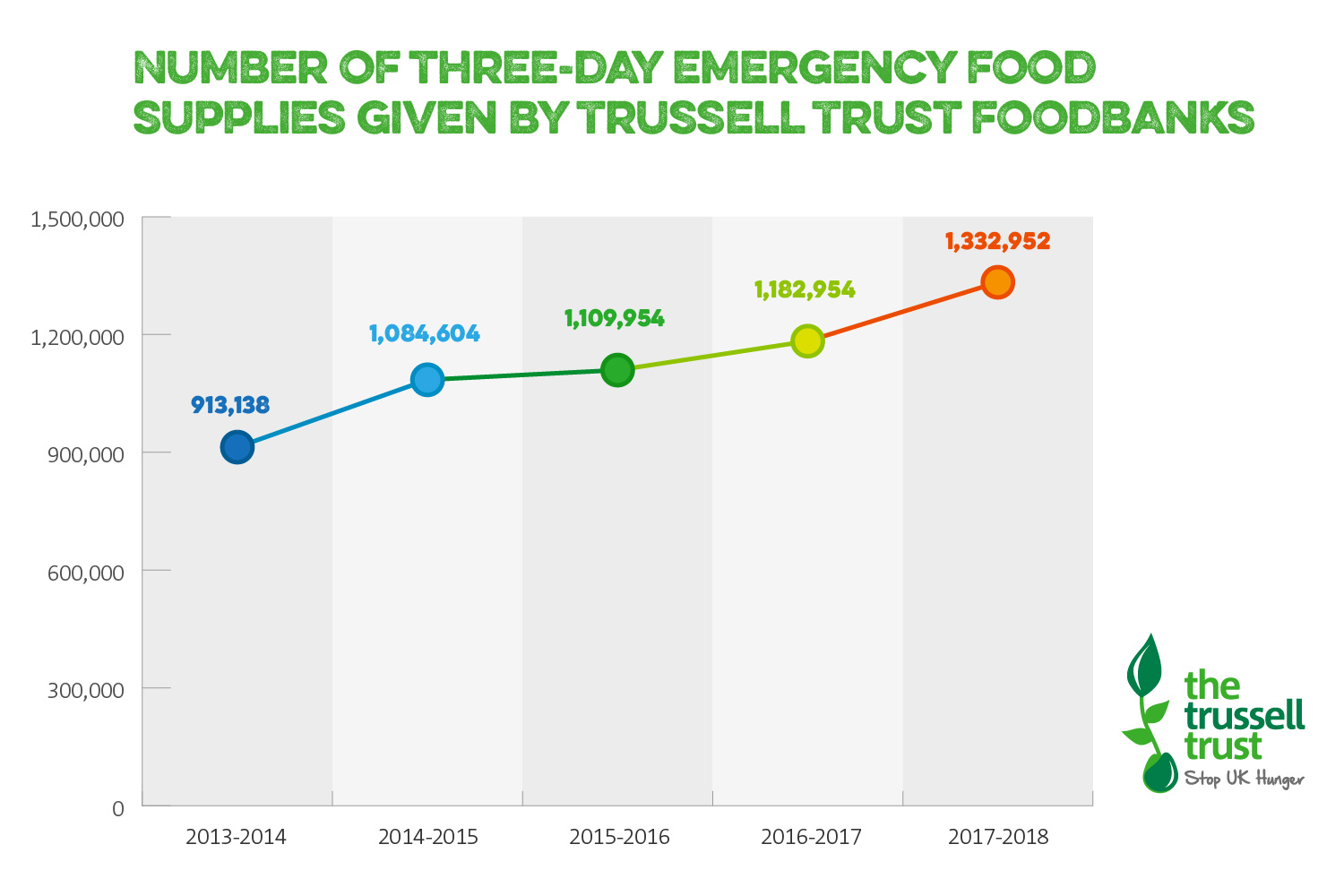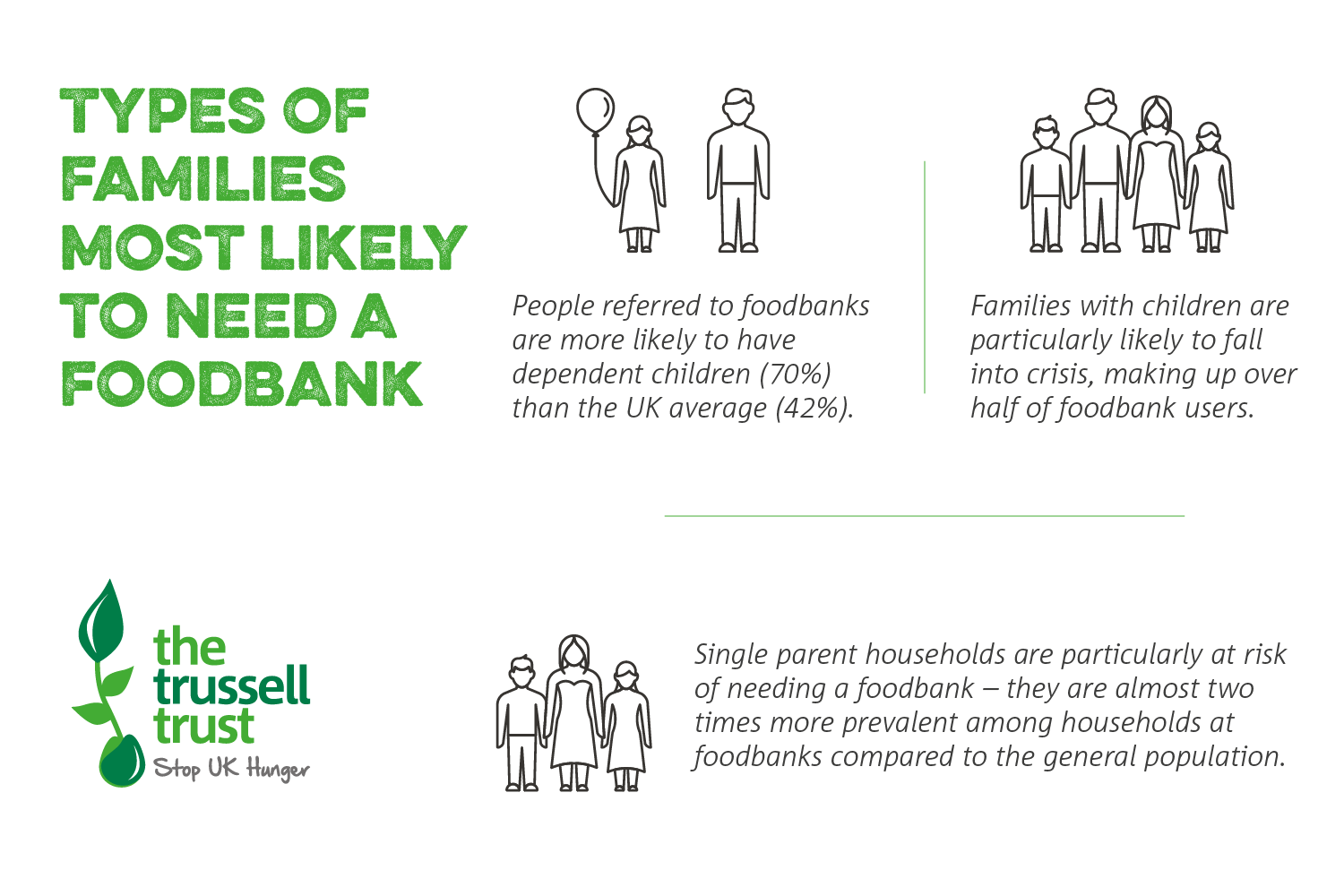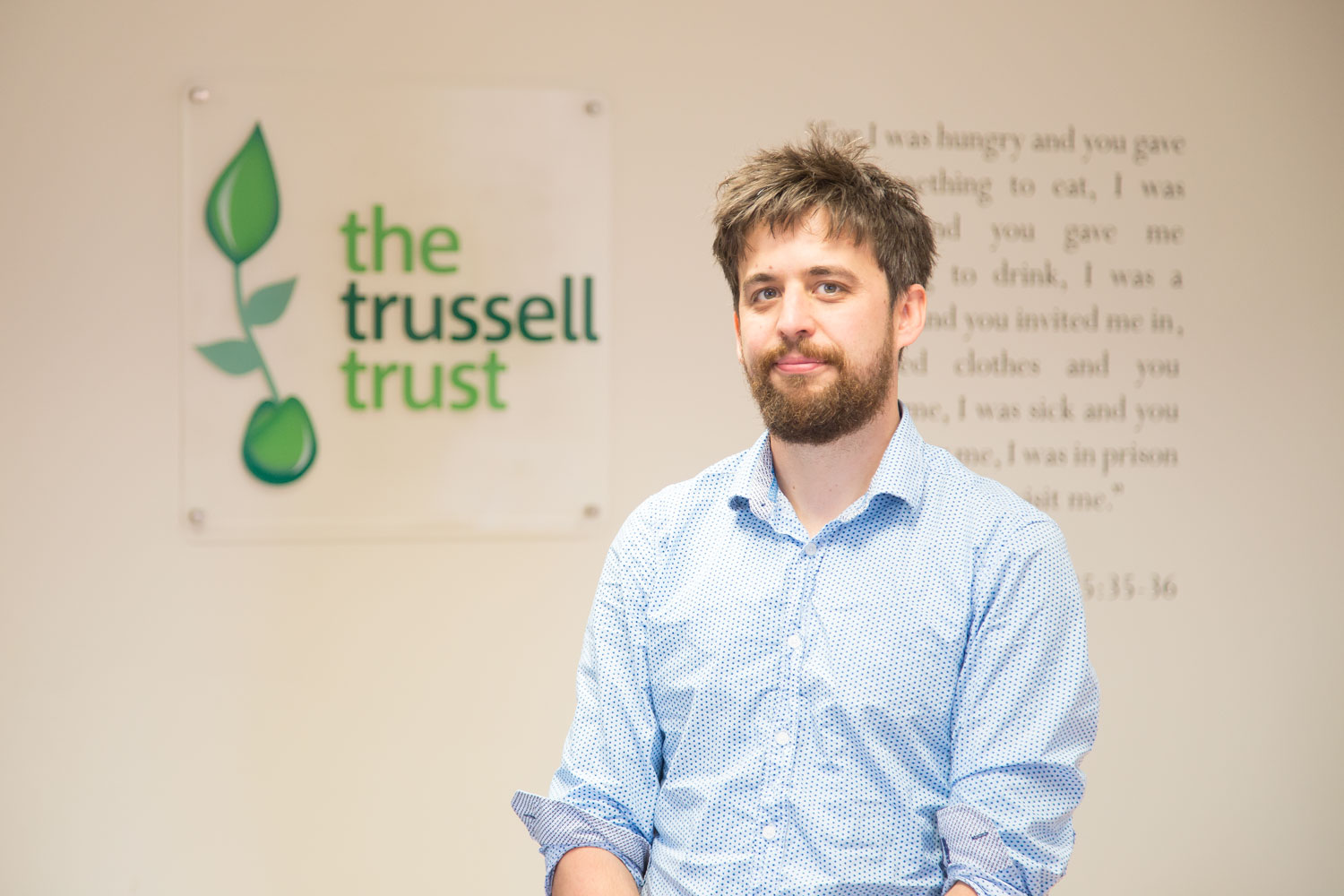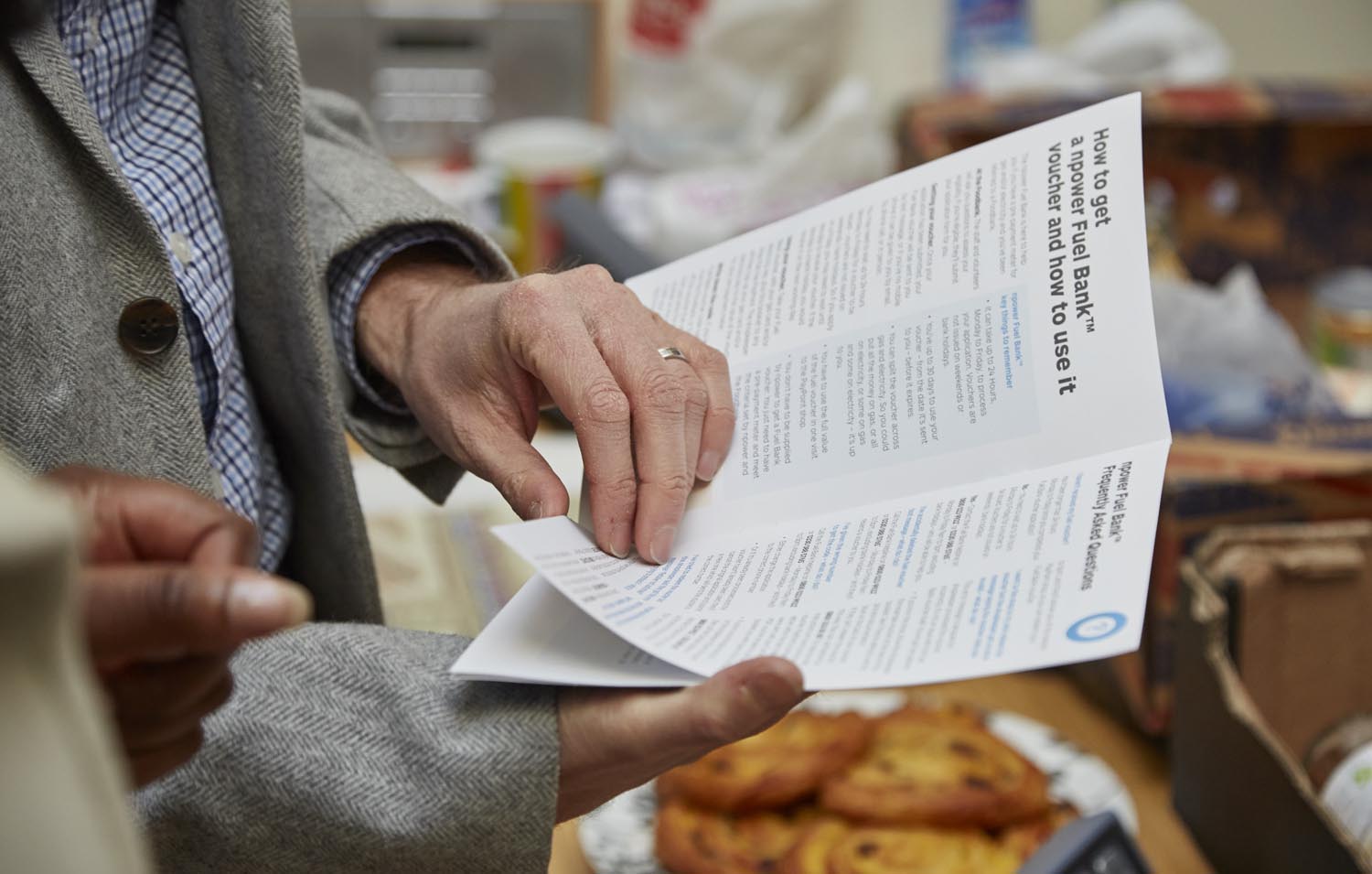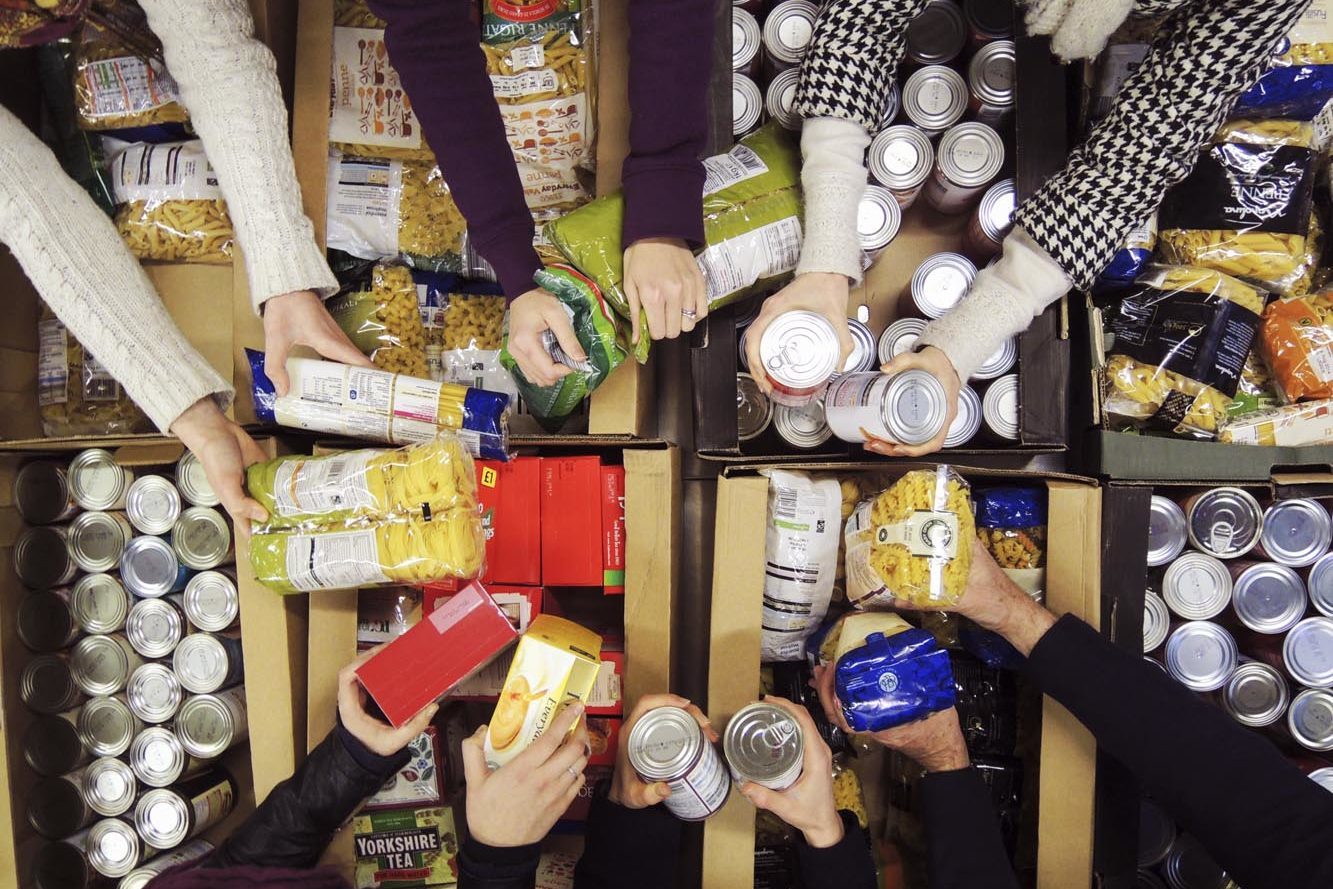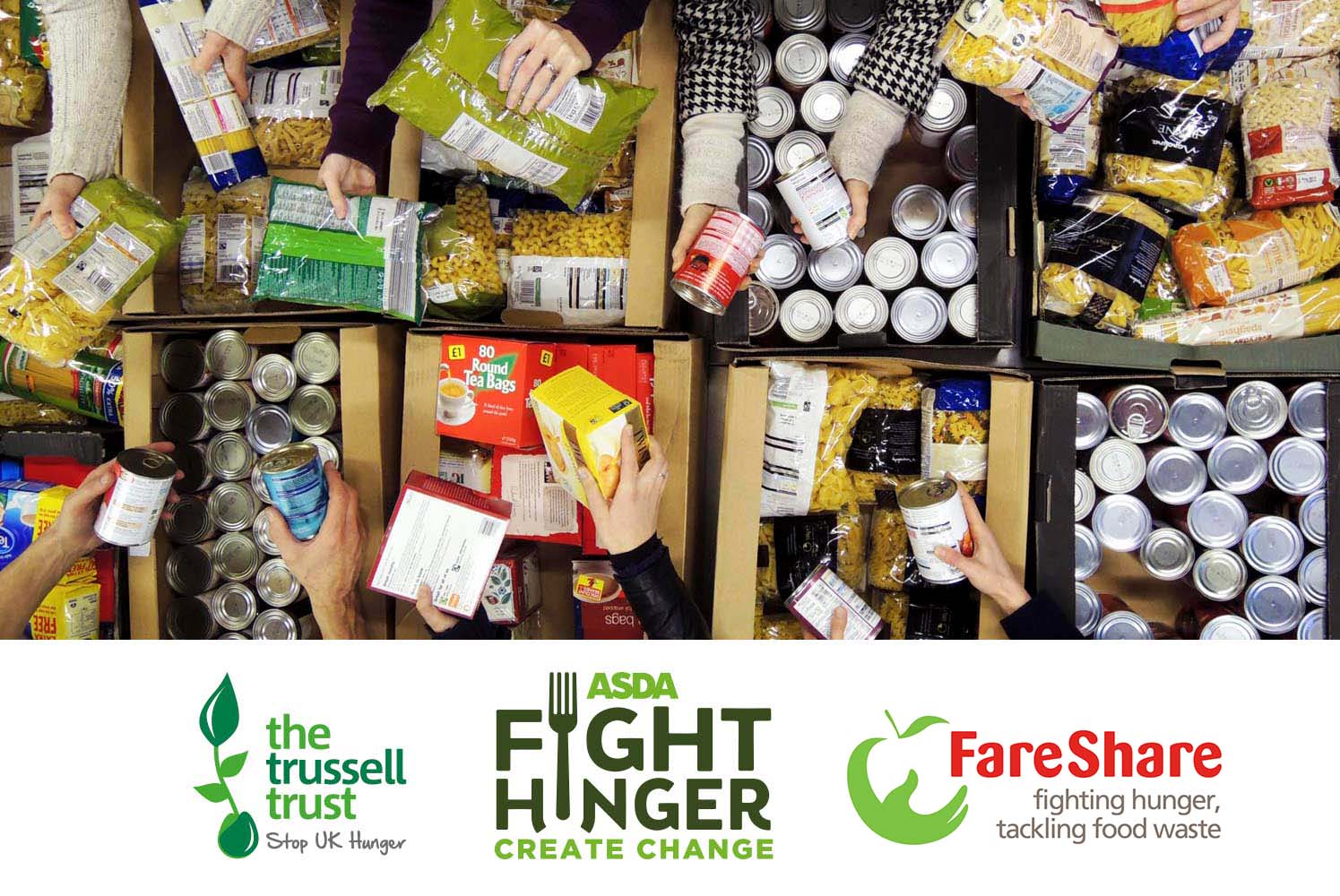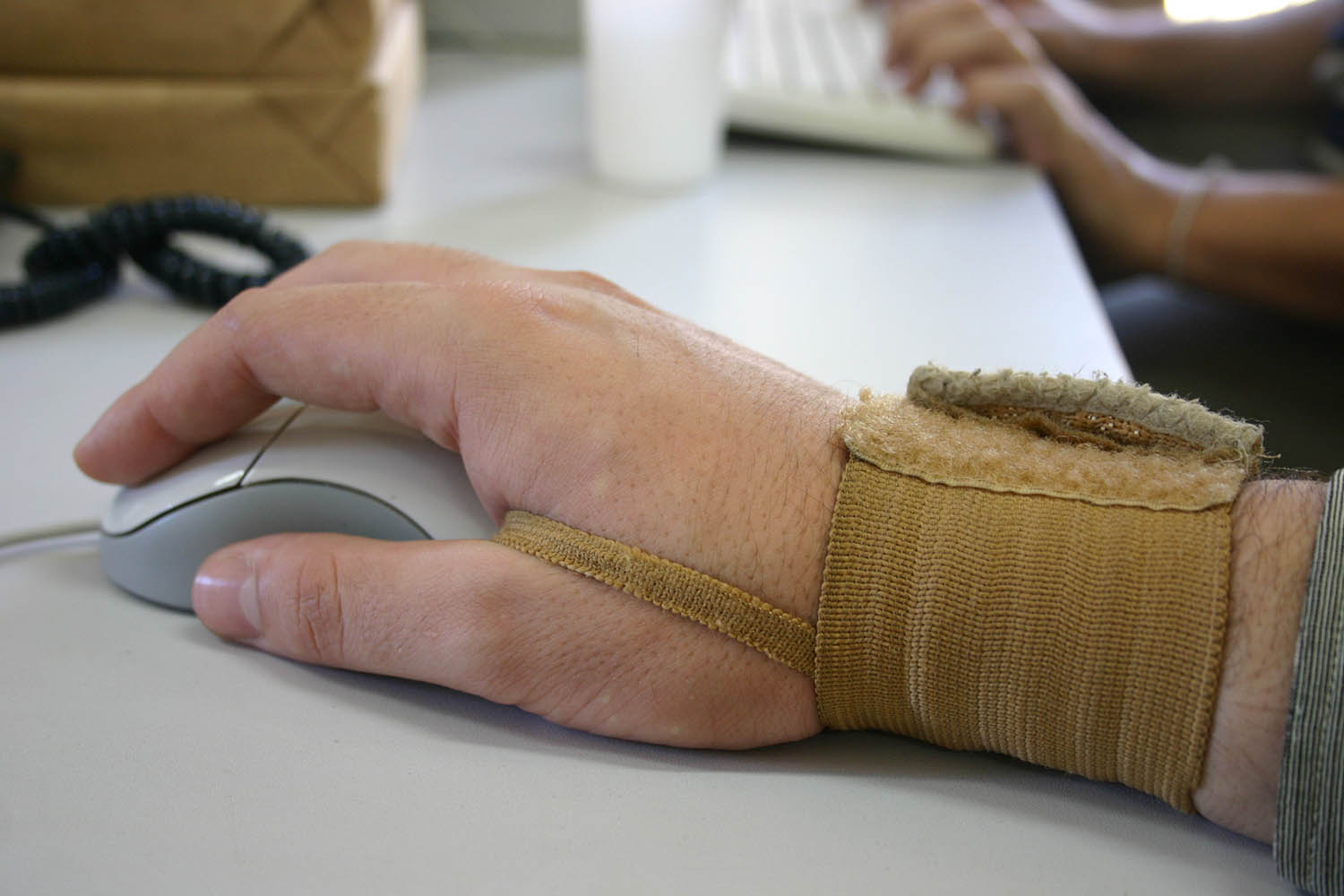- Over 1 in 10 adults and almost 1 in 4 parents with children aged 18 and under skipping meals because of lack of money
- Majority of adults (3 in 5) have seen food bills go up in last 3 months, reflecting higher food inflation
- 77% of adults agree the Government should measure household food insecurity**
- Coalition of food poverty charities, End Hunger UK, calls for national measure of household food insecurity to tackle ‘hidden hunger’ crisis
New figures released today show the extent of ‘hidden hunger’ across Britain, with 16% of adults either skipping or seeing someone in their household skipping meals, 14% worrying about not having enough food to eat, and 8% going a whole day without eating because of lack of money in the last 12 months. People are seeing higher food bills, with 59% of adults seeing their groceries costing more in the last three months compared with the same period before.
Parents of children aged 18 and under are particularly food insecure, with 23% either skipping or seeing someone in their household skipping a meal due to a lack of money, 23% worrying about not having enough food to eat, and 13% going without eating for a whole day in the last 12 months. Parents with primary school-age children (aged 5-11) fared worst, with 27% either skipping or seeing someone in their household skipping meals to make ends meet in the last 12 months.
People in work didn’t fare better than the average, with similar figures for skipping meals, working about not having enough to eat and going a whole day without eating. However, the survey also suggests other groups, such as people not in work and 18-24 year olds, face dangerous levels of food insecurity. 36% of unemployed people had skipped a meal and 28% had gone a whole day without eating, while 23% of 18-24 year olds had skipped a meal and 20% worried about not having enough food to eat.
Most (77%) of adults think the Government should monitor how many people in the UK are food insecure. Anti-poverty charity The Trussell Trust has reported that foodbank use is set to hit record numbers this financial year, but these figures do not include independent foodbanks (which make up around a 1/3 of the total number of UK foodbanks[1]), other food aid providers, or people who skip meals without asking for help.
Foodbank figures also cannot capture people who rely on friends and family or discount food to get by. Today’s figures show 21% of adults bought cheaper or discounted food out of necessity, while almost 1 in 10 (8%) relied on friends and family for a meal, highlighting the scale of ‘hidden hunger’. Parents with children aged 18 and under were even more likely to rely on friends and family (11%) or buy cheap or discounted food (28%).
In response to today’s new statistics, End Hunger UK, a coalition of food poverty organisations which includes The Trussell Trust, the Food Foundation, and the Independent Food Aid Network, have called on the Government to commit to measuring household food insecurity.
Emma Lewell-Buck, MP for South Shields and author of a bill on measuring food insecurity, said today:
‘Now is the time for the government to sit up and tackle the growing issue of hunger in our country. Whilst the Government has carried out snapshot measures of food insecurity, these are piecemeal and don’t allow for assessment of long-term trends. We know that 1.1 million food parcels are given out in Trussell Trust foodbanks alone but these figures are clearly the tip of the iceberg. – the United Nations has estimated over 8 million people in the UK are food insecure; approximately 2000 food banks and foodbank centres are in operation; rising levels of hospital admissions due to malnutrition cost the NHS £12bn per year; and there are record levels of in-work poverty.
Without a robust system of household food insecurity measurement in place, making policy to mitigate hunger will never become a reality. It is clear that the time for action is now and urgent. That’s why I’m taking a bill to Parliament to make the Government measure hidden hunger, because what gets measured gets mended.’
Laura Sandys, Chair and Founder of the Food Foundation, said today:
‘The research shows that more and more of British families are unable to provide regular meals and are frequently anxious about providing the basics – food on the table for their families. Not only is this unacceptable in 21st Century Britain but we have to start counting the health and social consequences for the next generation. We know that food insecurity can trigger a range of unhealthy eating habits and force people to buy cheaper, less nutritious and more calorific food. This Government has an opportunity to lead the fight against this hidden hunger by measuring household food insecurity and making sure people can afford to feed themselves and their families a healthy diet.’
ENDS
Notes
**Food insecurity is defined as going hungry, at risk of going hungry or worried about going hungry due to not being able to afford food
Methodology
All figures, unless otherwise stated, are from YouGov Plc. Total sample size was 2032 adults. Fieldwork was undertaken between 16th – 17th January 2018. The survey was carried out online. The figures have been weighted and are representative of all GB adults (aged 18+).
End Hunger UK is supported by many national organisations, including: Baptist Union of Great Britain; Church Action on Poverty, Church of Scotland; First Steps Nutrition, Food Bank As It Is, Magic Breakfast; National Federation of Women’s Institutes; Nourish Scotland; Food Ethics Council; Food Matters; Oxfam GB; The Food Foundation; The Methodist Church; The Trussell Trust; Independent Food Aid Network; Student Christian Movement; Sustain: the alliance for better food and farming; Quakers in Britain and United Reformed Church.
[1] ‘Mapping the UK’s Independent Foodbanks’, 2017, Independent Food Aid Network. http://www.foodaidnetwork.org.uk/mapping
Read more
